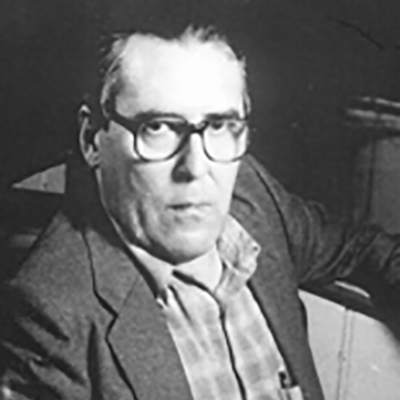Bauçà: A Catalan Literary Cult Figure To Be Published in English
“Bauçà is both lucid and obtuse, holy and crazy, a symptom and an excrescence.” (Julià Guillamon)
Miquel Bauçà (1940-2005), poet and narrative writer, was perhaps the most radical stylist, iconoclast and visionary in Catalan literature: eschewing publicity, insulting his peers, and writing unclassifiable books. Today he is seen as a cult figure and his works as contemporary classics.
Carrer Marsala. El Vellard. L’escarcellera [The Siege in the Room. Three Novellas]
This volume brings together three short novels by Catalan literature great maverick and recluse, each depicting a brutal, abstract world where words are the only reality? shifting between the erudite, the archaic, and the vulgar. Carrer Marsala which won prizes form the City of Barcelona and the Generalitat de Catalunya? neither of which Bauçà bothered to accept –is a relentless monologue delivered by a paranoid hypochondriac obsessed with dental hygiene, sex, and his own squalid rooms in Barcelona. In The Old Man, the narrator observes a strange building where a decrepit prisoner is ritually beaten by a policemen once a week. The Warden details the narrator’s own captivity and his relationship with the woman who keeps him prisoner. In Martha Tennent’s haunting translation, reminiscent of a Mediterranean Beckett or Thomas Bernhard, Miquel Bauçà’s work is a pungent reminder of the ways the world fails its prophets and pariahs.
I Was Born On 7th...
I was born on 7th February 1940 and, on the 14th of the same month twelve years later, my mother decided to make me an orphan. I don't know if she did it out of revenge or was simply moved by some instinct of imitation. The fact is that, four months before this, I'd got away from home, making the most of the occasion when my father, a most god-fearing man, had arranged to hand me over to a sect of pious rustic barons who were still full of ardour after winning the war.
All this is set against the backdrop of a rural household in the southeast of the largest of the Balearic Islands, a house built by my maternal grandfather with blocks of sandstone that he himself hewed from a nearby quarry. This grandfather had gone off to Argentina in a transatlantic vessel full of Slavs, who drank, sang and sweated in the hold. He got so homesick in this country that he had to come back, empty-handed except for a revolver that pretty soon rusted after being mishandled by the children.
So, winters I spent with those devout gentlemen in the Capital; in summer, however, I helped my father with his most clearly defined passion: constructing dry walls in order to divide and subdivide the bit of scrubland he had bought with his wife's jewels.
That lasted until I was eighteen. After that, I don't think I need to mention anything of particular note.
Miquel Bauçà
"Nota de l'autor" [Author's Note] in Obra poètica [Poetic Work] (Empúries, 1987), reproduced with permission of the publisher




